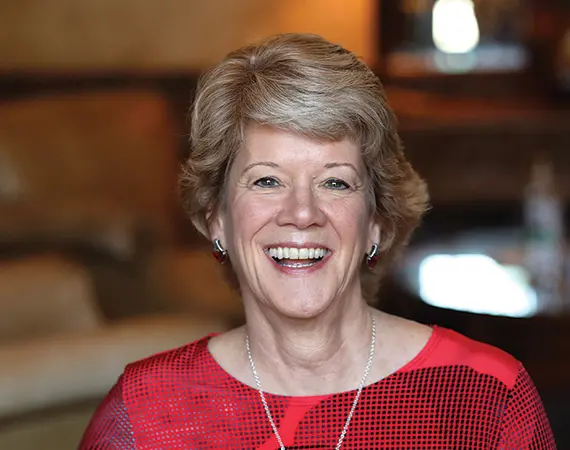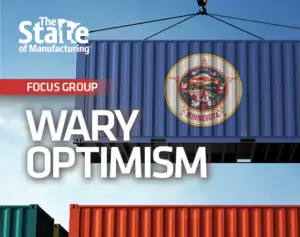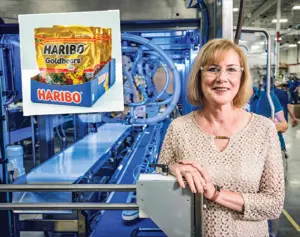There wasn’t much slack in the supply chain before the pandemic slammed the global marketplace; once COVID hit, we all know the chaos that quickly followed. With OEMs relying heavily on suppliers from across the globe, logistics tie-ups aggravated an already fragile situation. Remember when a ship ran aground in the Suez Canal, creating a logjam of at least 350 ships and stranding nearly $10 billion worth of goods for almost a week?
We’re all grateful that supply chain dynamics have improved. But the system remains susceptible to disruption because OEMs still rely on suppliers from around the globe.
We can hope we’ll avoid a repeat of 2020-21, but as our business consultants often say, hope isn’t a strategy. That’s why we’re working with our national partner, the Manufacturing Extension Partnership (MEP), to help address supply chain vulnerability by connecting OEMs to Minnesota’s manufacturers.
Manufacturers that produce parts for OEMs comprise 70% of Enterprise Minnesota’s clients, and we’re eager to help them expand their businesses by reaching more customers. Matching OEMs with Minnesota manufacturers is a natural win-win.
Enter our newest staff member Amanda Baumgart, a research analyst. Hired through a grant we earned from MEP, Amanda offers a rare combination of skills: She’s an outstanding data analyst with marketing experience and an outgoing personality. She also speaks four languages. Amanda graduated from the University of St. Thomas and earned a master’s degree from Babson College by age 20.
Amanda will be working closely with MEP’s Supply Chain Optimization and Intelligence Network (SCOIN), an organization with untapped potential to connect OEMs with Minnesota manufacturers.
The way it operates now, requests from any manufacturer in the U.S. in need of a part, product, resource, or information are sent through SCOIN to state-based MEP partners such as Enterprise Minnesota. But often there isn’t enough detail to match them to potential suppliers. It’s hardly surprising when vague requests such as “company seeks coconut fiber fabric for natural biodegradable erosion control to be used in habitat restoration projects” generate few or no responses from potential suppliers.
Among Amanda’s first tasks is to incorporate the specific needs of OEMs — from product specifications and pricing to certifications and shipping methods — into a robust and relevant database. She’ll then use other databases and information sources to find Minnesota companies that meet those criteria.
“In an ideal world, we could see the suppliers with capabilities on one side and the OEMs with the project needs on the other,” Amanda says. “At that point, I’m a matchmaker. We look at our data, we talk to our field staff, and very quickly we’re able to come back to the OEMs with a list of suppliers who meet their needs.”
Our initiative is well-timed for Minnesota manufacturers who are seeing demand settle down to more normal levels and might soon have excess production capacity. Last year, 43% of SOM respondents said they weren’t having trouble keeping up with demand. This year that number rose to 73%.
You might recall a Q&A interview in the fall 2022 issue of Enterprise Minnesota® magazine entitled, “It’s All About Partnerships” in which supply chain expert and Harvard Business professor Willy Shih recommended building strategic connections among manufacturers to win the supply chain battle.
Enterprise Minnesota is confident that we’re taking important steps through this project to help companies develop those critical ties. We couldn’t be more delighted to lend a hand, and we’re thrilled to have Amanda on board to help lead the way.
…
Featured story in the Winter 2023 issue of Enterprise Minnesota magazine.


